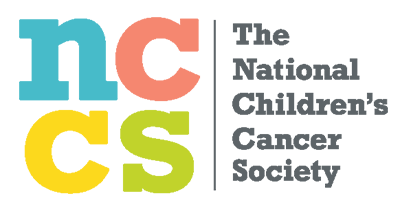The costs associated with childhood cancer make it difficult for many families to manage their regular expenses and absorb the costs of getting their child to lifesaving treatment. Ninety percent (90%) of NCCS families surveyed report having to quit, reduce hours or change jobs due to their child’s illness and 25%.
Support from family, friends and employers can help reduce the financial burden. Explore resources and consult a financial advisor to manage debt and reduce the direct and indirect costs of having a child in cancer treatment. Early intervention is key but the support is needed on an ongoing basis even after treatment has ended.

Ciara, Sarcoma Survivor
Despite the emotional and financial strain cancer can cause, parents continually demonstrate amazing resilience and perseverance. Ciara is an 11 year-old girl from Texas who was diagnosed with synovial sarcoma when she was eight years old. When Ciara was diagnosed, her family lost income from frequent work absences but their expenses increased. Just getting her to treatment was expensive. Ciara had to go to Ohio for a $4,000 surgery that was not covered by insurance. The closest children’s hospital was three hours from their home and the sarcoma specialty hospital was seven. “The constant travel, medical bills and stays away from home drained us financially,” said McKenzie, Ciara’s mom.
McKenzie ended up taking an eight month leave-of-absence from work to care for Ciara because she ran out of family medical leave. Over the past two years McKenzie reports that she missed more days of work than days she was there due to caring for her sick child.
Ciara’s family managed to get through the tough times by accepting help from family and friends. McKenzie advised to “never turn away help, whether it’s money or someone willing to mow your grass. If you say no once they will most likely not offer again.”
Another helpful tip is to make sure you have someone to turn to who understands the cancer experience. “Make sure to network and socialize with other families at the hospital because it’s important to find other people who understand exactly what it’s like to go through this experience. Don’t be embarrassed to seek help,” she added, “and remember you are not alone.”
Every family who has a child with cancer is impacted emotionally and financially. Talk to your hospital social worker to explore local resources and government assistance programs that are available to you. Take a moment to explore the Helpful Resources page on the NCCS website. Ask family and friends to create a GoFundMe page or host a fundraiser for your child. Talk to your NCCS case manager (1-800-5-FAMILY) about your situation for additional suggestions and resources.
There have been many advances in the pediatric oncology field with improved treatments, research and clinical trials. However, there is still a need for improvements in financial outcomes so families aren’t debilitated by medical debt. The National Children’s Cancer Society is proud to report that 98% of families who received financial assistance said it helped ease their troubles. Utilizing resources like NCCS, along with open communication with the hospital social worker, are necessary to effectively manage the costs associated with cancer treatment.


